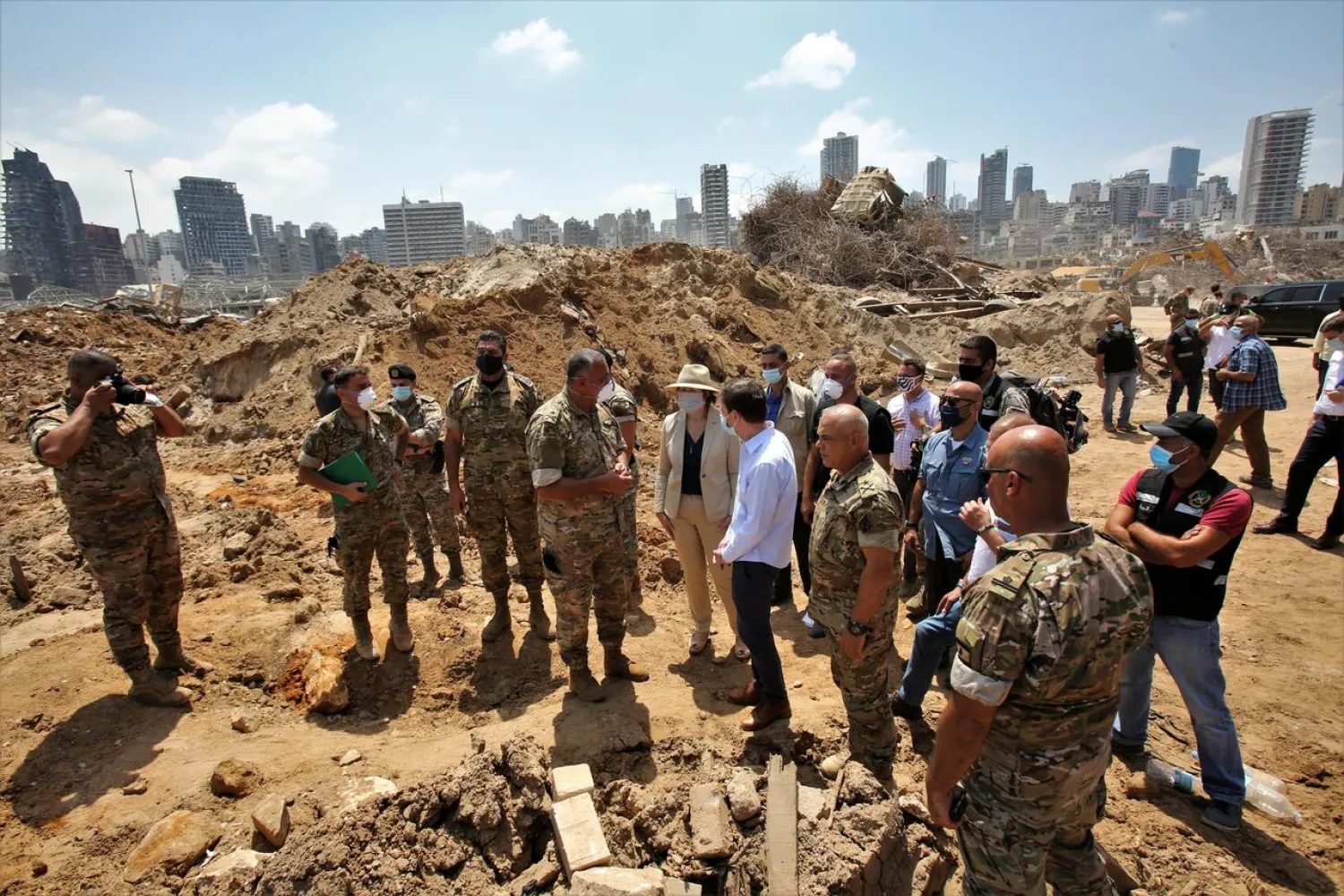Barely two weeks have past since the cataclysmic blast at Beirut port and Lebanese political parties have gone back to their old ways and are bickering over the formation of a new government and appointment of new prime minister.
Beirut has seen a flurry of diplomatic activity in wake of the blast that devastated the capital. French President Emmanuel Macron, US Under-Secretary of State for Political Affairs David Hale and Iranian Foreign Minister Mohammed Javad Zarif have all visited Beirut, leaving in their wake differences among political parties over the new cabinet lineup and premier.
The disputes will likely delay the announcement of a date for parliamentary consultations to name a new PM. They may take place even after Macron’s expected return to Beirut on September 1.
Ministerial sources told Asharq Al-Awsat that the delay was inevitable because political parties are keen on reaching an agreement on the form of the government before the naming of a new premier. However, each party has its own vision of how the new cabinet should look like, which will in turn lead to weeks, if not months, of political bickering given past experiences.
Contacts in the past 48 hours have not led to any breakthrough over an agreement on a PM. An agreement is unlikely in the next two weeks and Macron will return to Lebanon with very little political progress being made on the ground.
Macron had called for the formation of a national unity government.
President Michel Aoun advocates this call, said the sources. They explained that he would prefer the participation of all main political parties so that they could all take part in reform and the fight against corruption. A party that chooses not to be part of this government would have taken the decision to marginalize itself.
The strongest candidates to head the new cabinet are former PM Saad Hariri and Ambassador Nawwaf Salam. Former minister Khaled Qabbani is the latest name to be thrown in. Informed sources said that discussions are mainly focusing on the reappointment of Hariri, who is clearly favored by the United States and France, said the sources.
They added that as it stands, however, an agreement over a new PM will not take place any time soon. The opposition camp, specifically the Progressive Socialist Party, Lebanese Forces and Hariri’s Mustaqbal Movement, is divided among itself over the form of the new cabinet. The divisions came to the fore after the Mustaqbal Movement and PSP MPs had agreed to resign from parliament after the port blast, but decided against it after Macron’s visit.
The sources added that disputes over the government are also related to the next presidential elections, which are set for 2022.
Despite the internal divisions, the opposition has announced its support for a neutral government. The sources said that this demand is not viable given the Sunni sect’s refusal to repeat the same experience of the Hassan Diab cabinet, which quit on Monday over the blast. The Sunni camp is therefore, leaning towards renaming Hariri.
The sources noted that Free Patriotic Movement leader MP Gebran Bassil has toned down his rhetoric in wake of Macron’s visit, adding that the solution may lie in the formation of a transitional government headed by Hariri. It will include FPM representatives, but exclude Bassil, and non-partisan officials chosen by Hezbollah.
Aide to PSP chief Walid Jumblatt, Rami Rayyes told Asharq Al-Awsat that no one was under the illusion that process of forming a new government will be easy.
He cited “major complications” over its “form, nature, composition and size” especially since internal and foreign contacts are at a standstill.
On Hezbollah chief Hassan Nasrallah’s rejection of a neutral government, he said: “The party has long opposed neutral cabinets for its own well-known interests and political calculations. Nothing has changed in this regard.”









